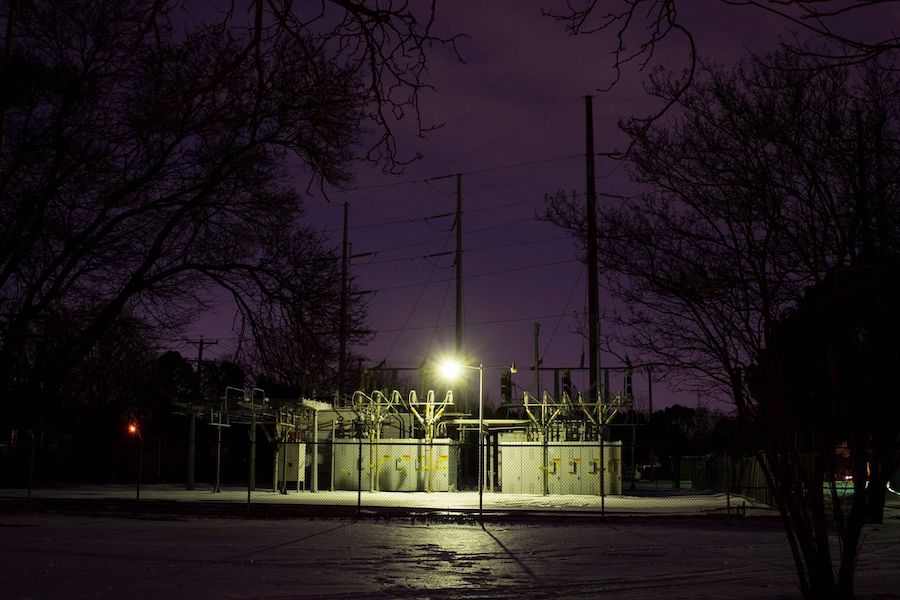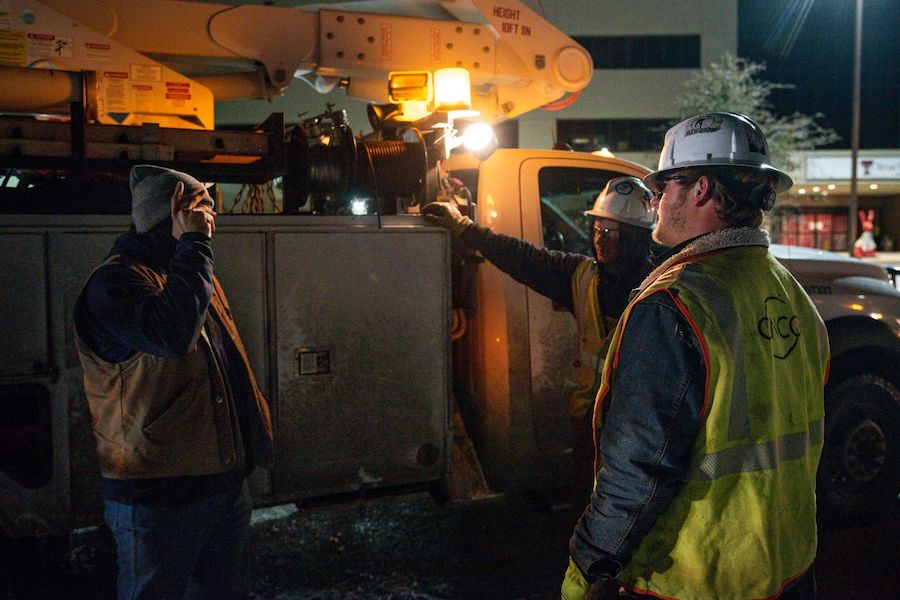Texas Is Pressed to Do More To Prepare for Power Collapse
 A power substation in Waco, Texas, was surrounded by snow after a severe storm left millions in the dark in February.
A power substation in Waco, Texas, was surrounded by snow after a severe storm left millions in the dark in February.
Texas needs to revamp the procurement of “black start” resources—the power generation that would be needed to jump start the grid in the event of a collapse—five former members of the Public Utility Commission of Texas said Thursday.
The former officials made the suggestion as part of a broader package of recommendations they said are needed to harden the Texas grid against future stresses and protect residents against extreme weather.
The Wall Street Journal reported last month that more than half of these black-start emergency generators for the Texas power grid weren’t working properly during a devastating freeze in February. The article cited official data showing that 15 of 28 emergency generators were unavailable at times during the winter emergency, because they had technical difficulties or couldn’t get fuel.
Pat Wood III, a former chairman of the Texas commission and one of the authors, said he has been in discussions with state officials and there is recognition that flaws in the black-start program need to be fixed. “We ought to demand more of black start and we ought to pay more for it,” Mr. Wood said in an interview with the Journal.
Across the U.S., black-start providers have a financial problem. They can end up spending more setting up and fueling black-start units than they receive in payment for them.
Another recommendation of the newly issued advisory report is for Texas to put more money into programs that help people insulate their homes. The report said 60% of Texas homes are heated with electricity. Yet, millions of homes are uninsulated, which greatly adds to electricity demand during extreme heat and cold and jeopardizes the health of residents.
Mr. Wood, who also served as chairman of the Federal Energy Regulatory Commission, said legislation headed to the governor’s desk will require power generators and pipelines to weatherize their equipment. But more needs to be done to protect people. He said he and the other former officials were offering their thoughts because they all played a role in the deregulated energy system that now exists in Texas. “We owe it to our fellow citizens to speak the truth, as unbiased and factually as we can,” he said. “We all wear some of the blame.”
 Workers were sent to Odessa, Texas, to make repairs and restore electricity after the February storm damaged large parts of the state’s power grid.
Workers were sent to Odessa, Texas, to make repairs and restore electricity after the February storm damaged large parts of the state’s power grid.
Another recommendation is that utilities retool their outage-management systems. In February, utilities were unable to initiate rolling blackouts lasting a few hours, and instead blacked out huge areas for days because their outage-management tools were too crude. That resulted in frozen pipes in buildings and, even, in deaths from hypothermia.
“The power system is getting more complicated and is failing in more complicated ways,” Alison Silverstein, a report author and former adviser at both the Texas utility commission and the Federal Energy Regulatory Commission, said in a statement.
Other authors of the report, published by the Cynthia and George Mitchell Foundation, were former members of the Public Utility Commission of Texas, including Robert Gee, Judy Walsh, Brett Perlman and Becky Klein.
The report, "Never Again: How to Prevent Another Major Texas Electricity Failure," was funded by a grant from Energy Foundation and the Cynthia and George Mitchell Foundation.

NEWS
Hide Full Index
Show Full Index
View All News